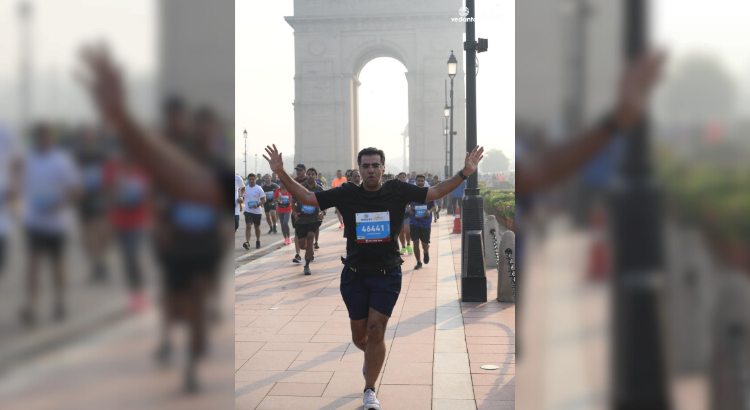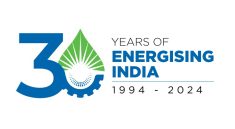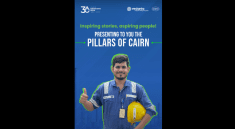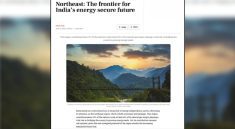Leading with Innovation, Adaptability and a Vision for the Future at Cairn
Mandeep Narang’s journey from being the first Graduate Engineer Trainee at Cairn to leading our operations as Chief Operating Officer is a testament to the power of discipline, adaptability, and a passion for innovation. A self-confessed ‘Meaningful Introvert’ who leads one of the largest teams at Cairn, Mandeep has grown through hands-on experiences across geographies, offshore and onshore operations, global assignments, and digital frontiers. In this exclusive conversation, Mandeep shares some of the defining reflections from his career, his vision for the future, and the personal values that guide him.
Q. You’ve had a long and inspiring journey with Cairn, tell us how it all began and what shaped your growth into a leadership role.
A: “I was the first GET that Cairn PLC hired. My journey started at Suvali, and then, after my 2 years at Cairn, I moved to Bombay High. But it was offshore where things really changed for me. Just a year into the job, I was managing full-fledged operations, which gave me a crash course in real-world application of everything I’d learnt. Planning, precision, and problem-solving became a way of life. I used to dream about becoming an Offshore Installation Manager, and eventually I became a Global Installation Manager for Shell. Working internationally taught me to appreciate cultural nuances, operational discipline, and the value of collaboration. Over time, I evolved from being a technical engineer to a people-centric leader who could speak multiple operational ‘languages’, across locations, dialects, and roles.”
Q. You’ve spoken about the importance of journaling. What role does it play in your life, and what book are you currently reading?
A: “Journaling is something I’ve turned to for clarity and reflection. It helps me sort my thoughts, especially during high-pressure phases. Whether I’m managing multiple projects or navigating stakeholder expectations, writing things down allows me to see patterns and solutions more clearly. It’s like a quiet coach. Right now, I’m reading How to Kill Your Family. I’ve also developed a deep interest in Chinese, Korean, and Japanese literature, there’s something unique about how they present human emotions and discipline. It adds a different layer of insight to how I think and lead.”
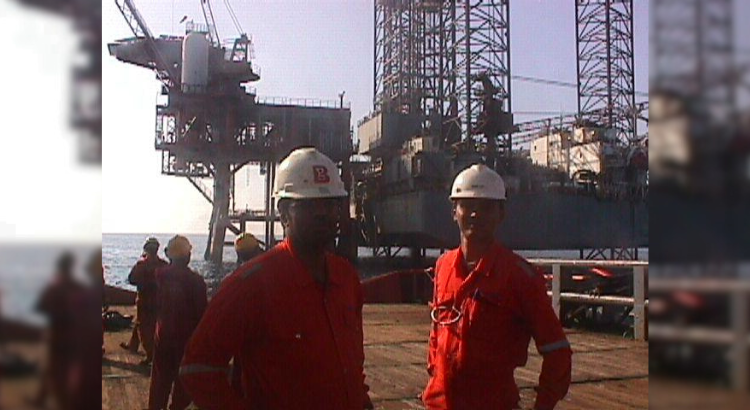
Q. If you weren’t in operations role, what would you be doing instead?
A: “I think I’d be a pilot. There’s something about flying, precision, discipline, and a sense of freedom, that has always appealed to me. Even as a student, I was drawn to the structure of aviation. It aligns well with how I operate in high-stakes environments, calm, calculated, and focused.”
Q. If you could instantly master any skill or talent, what would it be?
A: “It would be coding. In today’s world, the ability to write code is like having a superpower, you can build, automate, and solve complex problems from scratch. My early interest in digital tools came from freelancing in college. That exposure made me appreciate how technology can transform even the most traditional operations. Being hands-on with tech helps you lead digital transitions better.”
Q. What’s the most surprising thing you’ve learned about yourself during your career journey?
A: “Honestly, that I’m far more adaptable than I gave myself credit for. I started as a shy engineer and found myself managing full offshore operations within a year. Then came global roles, different cultures, different challenges. Somewhere along the way, I learned to listen deeply, connect with people beyond roles, and lead with empathy, even when the dialect or work style was completely new. That human side of leadership has surprised and shaped me the most.”
Q. How do you unwind post work, considering the demands of your role?
A: “Saturdays and Sundays are strictly for family. It’s a boundary I’ve drawn intentionally. We have a Sunday ritual of watching movies together, and we take at least one trip a year; preferably somewhere close to nature. I’m not much of a city traveller. Time with family grounds me. It reminds me of why I work as hard as I do.”
Q. How do you evaluate and prioritise opportunities for growth or expansion?
A: “It’s always a mix of strategic fit and execution capability. First, we ask, does this opportunity align with where we want to be? Then, we assess how quickly and effectively we can act on it. In a fast-evolving sector like ours, speed and adaptability are just as important as strategy. An idea is only valuable if it can be scaled with precision and pace.”
Q. Can you walk us through one of the biggest operational challenges you’ve faced?
A. “One of the biggest challenges has been leading people through transformation. Technology is the easy part, what’s harder is changing mindsets. When we introduced digital monitoring and predictive analytics across fields, the toughest task wasn’t installation, it was getting teams to trust it, use it, and make it part of their daily rhythm. Success came not just from tools but from conversations, trainings, and showing how it made their lives easier. Change, ultimately, is about people.”
Q. How do you see technology, like AI and automation, reshaping the future of operations at Cairn?
A: “We are witnessing a complete paradigm shift. With AI, automation, and IoT, our operations are becoming more intelligent and agile. At RJ North, for example, we’ve already moved towards full digitalisation of well life and maintenance. This isn’t just about systems, it’s about enabling smarter decisions, predicting issues before they arise, and ensuring we work safer and faster. Technology is helping us move from reactive to predictive operations, and that’s the future.”
Q. Talking about technology, you’re known for your love of gadgets and technology. What’s your favourite right now, and why?
A: “Definitely my smartwatch. It tracks my runs and helps me stay connected with work, all in one device. For me, the best technology is the kind that enhances both wellness and efficiency. I like tools that serve a purpose beyond novelty, something that makes life simpler and more intentional.”
Contributed by Wellverse Team

